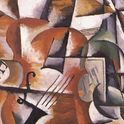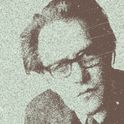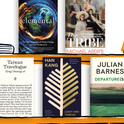The trend is linked to technology. The invention of transistors and cassette players meant that sound, once chained inside walnut-clad wirelesses and Dansette record-players, has become portable and personal. When the first Sony Walkman generation came of age, with our children and mortgages, we wanted something to feed our minds rather than numb them. Many of us are self-improvers but have no time to settle down with a book. The solution is "multi-tasking." We listen to the latest bestsellers as we jog round the block, weed the garden, redecorate the kitchen or take the dog for a walk. Thirty-seven per cent of audiobook listening occurs at home. Most of the rest happens in cars.
"The value of spoken word's turnover is now about half as much as that of recorded classical music," says Nicolas Soames, founder of Naxos Audiobooks. "Retail sales in 1999 were around ?65m-a 30 per cent increase on 1998. But Britain is still underachieving compared with the US, where sales have now topped $2 billion. That's 20 times British sales."
The biggest British sales of spoken word tapes come from the BBC Radio Collection. Its publisher, Jan Paterson, recently gave a party to celebrate sales of more than half a million for This Sceptred Isle, its 15-volume British history. Other successes have included Spoonface Steinberg and anything by Alan Bennett. At present, 1.4m people buy at least one spoken word tape each year, but that figure could be ten times higher. In Britain the average commuter journey is 25 minutes-55 minutes in London-and more than 70 per cent of the population makes that journey each day.
But it isn't just technology or commuting by car which is making talking books so popular. There has been a sharp improvement in their range and quality. Five years ago, the industry was divided between puritans who produced unabridged books at prices only libraries could afford, and cavaliers specialising in cheap and cheerful abridgements which did scant justice to the originals. Today, spoken word can claim to be a medium in its own right. Nicholas Jones, who produces the audio titles for Orion, is interested in the value which can be added by audio production: the use of an especially appropriate reader, for example. "And I'm working on the idea of separating the narrative into chapter-like chunks, so that there are 'natural breaks' in it." (One of Orion's most startling recent releases was Thomas Pakenham's coffee table book, Meetings with Remarkable Trees. You would not expect a book dominated by its illustrations to make good audio, but it does.)
The publishing giants now dominate the industry. But there is still room for small companies such as Naxos, which specialises in abbreviated classics. It recently published Joyce's Finnegans Wake plus an accompanying booklet providing every word read; the combination of seeing and hearing Joyce's pun-filled sentences transforms comprehension and appreciation.
The age profile of listeners-once mainly middle-aged and female-is broadening. Audiobooks are now stocked in petrol stations as well as in bookshops. Internet bookstores have cut prices and made the range of titles more visible. Amazon's internet bookstore offers audio versions alongside the printed word. The industry has a trade magazine called Talking Business, and a publishing association (the Spoken Word Publishing Association). The phrase "spoken word" seems to be the only one which applies equally well to 46 hours of Gone With The Wind, a full-cast dramatisation of David Copperfield, Terry Waite reading his autobiography, and Ted Hughes harshly intoning Tales From Ovid.
Another reflection of the coming of age of the medium is that authors such as Alan Bennett, Tom Wolfe and Stephen King are now writing with the spoken rather than the written word primarily in mind. They have all released works either exclusively or initially on audio-a reversion to tradition, back to the age-old love of listening to story-telling.
New formats, notably parallel CD releases, are being tried. And you can now download for free the appropriate software and sample extracts of tapes from such internet sites as www.talkingbooks.co.uk or www.audiobooks.com (one of the few dot.coms substantially in profit). The number of spoken word titles available is now about 16,000, with 100 to 120 new titles released each month. Publishers are advertising more as sales increase-Simon & Schuster has targeted motoring magazines with advertisements for its Professor Mindworld's Travelling Quizshow series. But most people still hear about titles from friends rather than advertisements.
Talking books are different from printed ones for the obvious reason that hearing is different from reading, but also because talking books are often abridged or imaginatively interpreted in some way. For this reason we need a separate criticism for the spoken word. But few newspaper review sections allot more than a quarterly round-up for spoken word titles.
There is almost always a choice between abridged and unabridged versions of a title- sometimes an abridgement can be better suited to listening than a complete book. One of the best justifications for abridging books and, indeed, reading them aloud was offered 400 years ago by Francis Bacon. "Some books are to be tasted," he wrote in his essay Of Studies, "others to be swallowed, and some few to be chewed and digested... Some books also may be read by a deputy, and extracts made of them by others."
Well-judged abridgements are a time-economical way of finding out whether or not a book which critics applaud is really for you. It took me only a few minutes of listening to an abridged version of Captain Corelli's Mandolin to know that this was a book that I wanted to hear at full length. On the other hand, I found two cassettes of the laboured similes and metaphors of The God of Small Things to be quite enough.
A few years ago, bicycling across Port Meadow with my headset on, I met a well-known Oxford don and enthused to him about my new job, reviewing audiobooks. He listened, shook his head slowly and said simply: "No cogitation time." Lack of cogitation time and the threat of "information overload" to our memories is a real modern danger. Thinking about what we have done or read is as necessary as digesting food. At least with talking books we choose what we hear, rather than allowing the radio to wash over us. Repeat listening is another advantage-many converts to the spoken word say how much they enjoy a tape a second time-hearing new things, relishing fine writing and reading. But don't forget the blessing of silence.











